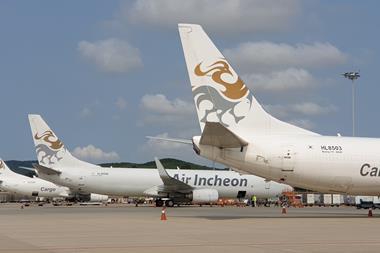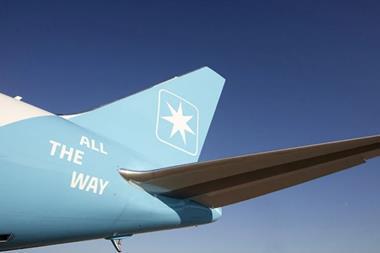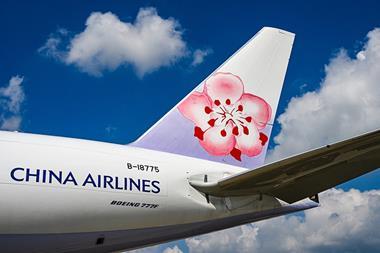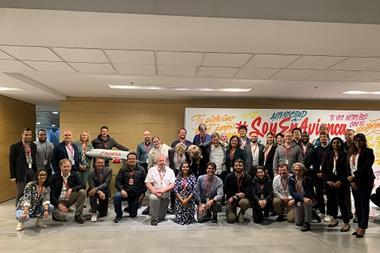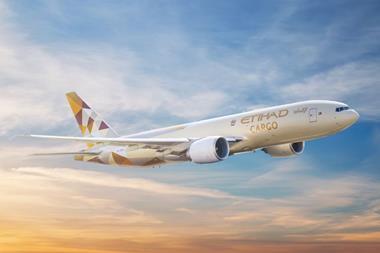US-based freighter lessor Atlas Air Worldwide Holdings (AAWH) is looking to “a strong fourth quarter,” and anticipates “solid peak-season yields and volumes” in year-end 2017.
AAWH, which leases B767 freighters to Amazon’s Prime Air overnight parcel airline, announced a loss from continuing operations, net of taxes, of $24.2m, including an unrealised loss on warrants of $44.8m, for the three months ended September 2017.
The latest quarterly results compare with a loss from continuing operations, net of taxes, of $7.5m, for the same period in 2016, which was due primarily to the tax impact of non-deductible expenses.
On an adjusted basis, income from continuing operations, net of taxes, in the third quarter of 2017 totaled $29.7m, which included a negative impact of $1.7m related to hurricanes. Results for the period compared with adjusted income of $27.4m in the same quarter 2016.
In its outlook, the company stated: “Looking to the fourth quarter and full year, we anticipate increased peak-season yields and volumes, including our additional seasonal flying for express and e-commerce operators.”
AAWH anticipates that its full-year 2017 adjusted income from continuing operations, net of taxes, will grow by a “high-single-digit to low-double-digit percentage” compared with 2016 adjusted income of $114.3m.
For the full year, it expects total block hours to increase approximately 20% compared with 2016, with about 75% of hours in ACMI and the balance in Charter.
President and chief executive William Flynn said: “We are encouraged by our performance in the third quarter, with 20% increases in both revenue and block hours, and higher direct contribution in all of our segments, reflecting the strong demand for our services, yields rose and the utilization of our aircraft increased.
“We also placed and began operating our seventh 767-300 aircraft for Amazon in August, and introduced aircraft eight, nine and 10 in October. We remain on track to ramp up to a full 20 aircraft for Amazon by the end of 2018.”
For the nine months ended September, AAWH’s continuing operations generated income of $14.9m, which included the impact of an unrealised loss on financial instruments of $36.2m related to outstanding warrants.
On an adjusted basis, income from continuing operations in the first nine months of 2017 totaled $67.1m, compared with $55.3m in the first nine months of 2016.
While demand, volumes, yields and utilisation increased during the third quarter 2017, some of that performance was offset by “higher maintenance expenses, labour-related operational disruptions and Hurricanes Irma and Harvey.”
On the final quarter and full year 2017, Flynn stated: “We are looking forward to a strong fourth quarter, and anticipate solid peak-season yields and volumes. Reflecting our year-to-date results and our fourth-quarter expectations, we anticipate that our full-year 2017 adjusted income from continuing operations, net of taxes, will grow by a high-single-digit to low-double-digit percentage compared with our 2016 adjusted income of $114.3m.”
He concluded: “The future for Atlas and for airfreight is bright. Growth in Asia and an expansion of the global middle class are transforming the global economy. Increased disposable income will support a strong future for global trade and the consumption of goods.
“And our strategic focus on express and e-commerce service and the faster-growing Asian markets positions us for further business growth as we carry through the balance of 2017, into 2018 and beyond.”
The aircraft, crew, maintenance and insurance (ACMI) segment contribution in the third quarter of 2017 was slightly higher compared with the prior-year period, as an increase in flying was largely offset by higher maintenance costs and labor-related operational disruptions. Segment revenue growth benefited from an increase in block-hour volumes as well as higher aircraft utilisation.
The higher charter segment contribution during the period was primarily driven by an increase in commercial yields, partially offset by higher maintenance costs, the redeployment of a B747-8F aircraft to the ACMI segment, hurricane-related impacts and labor-related operational disruptions.
Higher average rates during the quarter primarily reflected the impact of charter capacity AAWH purchased from ACMI customers on flights that had no associated charter block hours, higher fuel prices and higher commercial yields.
In dry leasing (aircraft only), the higher segment contribution primarily reflected a reduction in interest expense due to the scheduled repayment of debt related to dry leased B777 aircraft and the placement of 767-300 converted aircraft.
In a labour update regarding a dispute with its pilots, the company said: “In September 2017, the company requested the US District Court for the District of Columbia to issue a preliminary injunction to require the International Brotherhood of Teamsters to meet its obligations under the Railway Labor Act and stop its illegal, intentional work slowdowns and service interruptions, which are intended to gain leverage in pilot contract negotiations with the company.
“The hearing was completed in early November and a ruling on the request for a preliminary injunction is expected later this month.”






